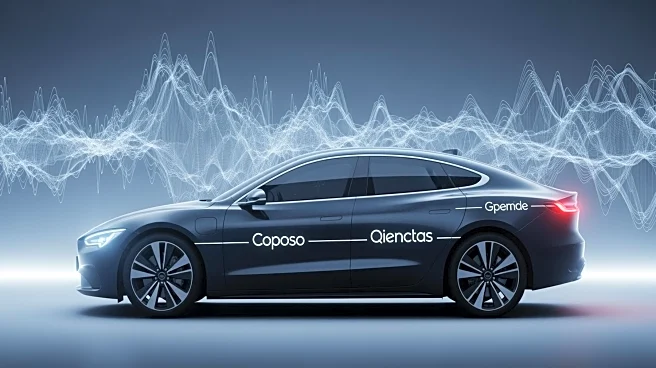What's Happening?
Volkswagen is revamping its electric vehicle (EV) naming strategy by reintroducing iconic model names to its EV lineup. The first model under this new approach is the ID. Polo, derived from the ID.2all
show car, set to launch in Europe in 2026. This strategy moves away from the 'ID.-plus-number' scheme, aiming to leverage the brand equity of well-known names like Polo, Golf, and Tiguan. By aligning EVs with familiar model lines, Volkswagen seeks to provide clearer orientation and build stronger consumer trust, while maintaining the 'ID.' designation to signify electric models.
Why It's Important?
This strategic shift is crucial for Volkswagen as it navigates the transition to electric mobility. By using established model names, the company aims to reduce consumer uncertainty and enhance brand recognition in the competitive EV market. This approach could accelerate EV adoption by making the transition feel more seamless for consumers, who can relate new electric models to familiar combustion engine counterparts. The strategy also reflects a broader industry trend of integrating traditional brand identities with new technologies to maintain customer loyalty and market share.
What's Next?
Volkswagen plans to gradually roll out this naming strategy as new models and facelifts are introduced. The company has hinted at the possibility of additional heritage names appearing on future EVs, such as an ID.-badged Golf successor or a Tiguan-aligned electric SUV. This gradual transition aims to ensure that the product character aligns with the iconic names, providing a smoother consumer experience. As the strategy unfolds, Volkswagen's approach could influence other automakers to adopt similar tactics, potentially reshaping the EV market landscape.








